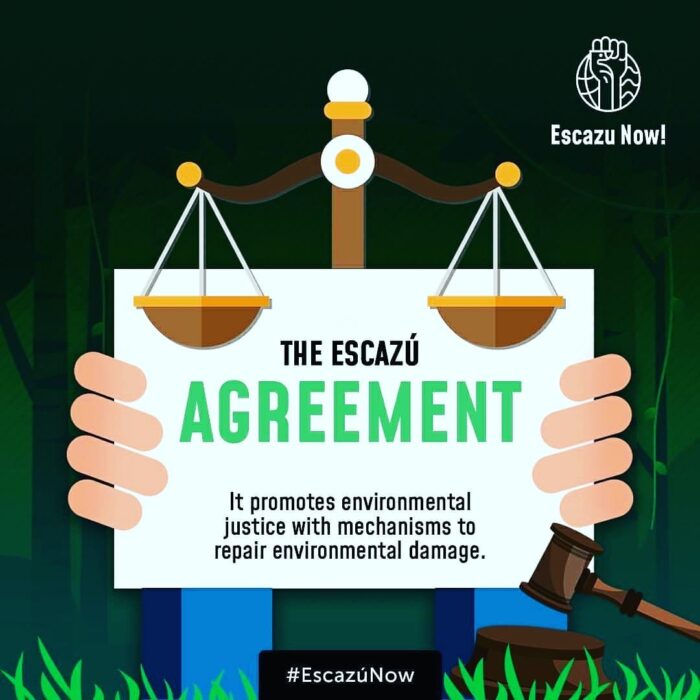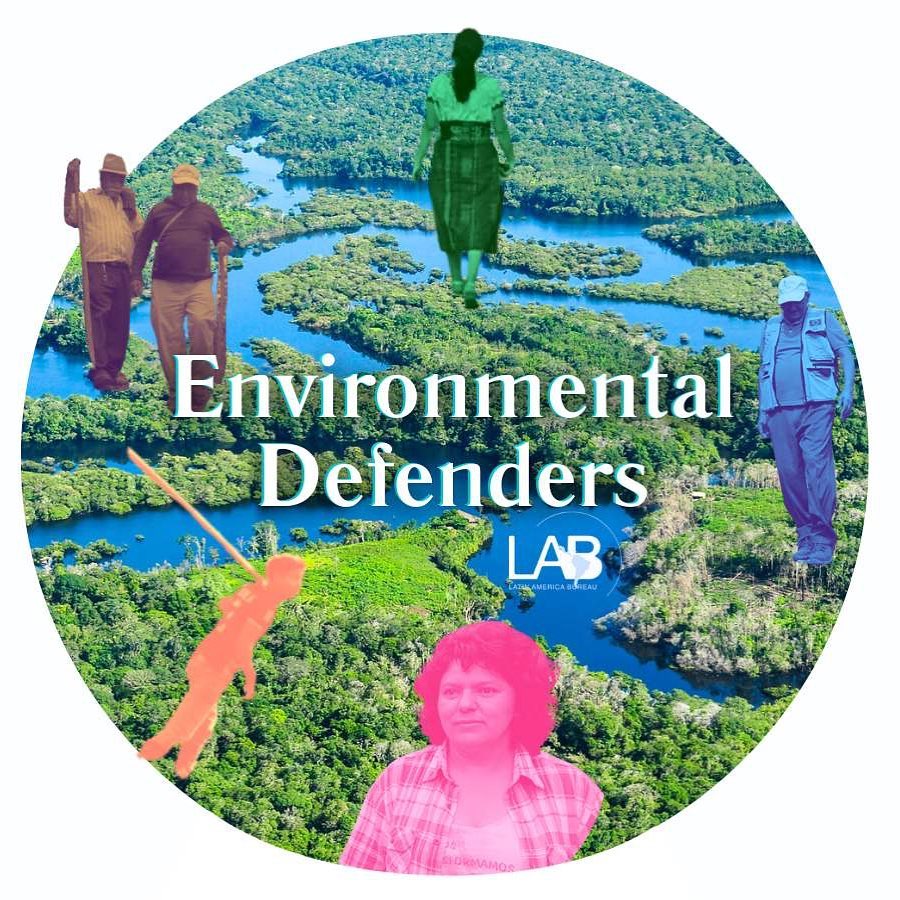‘To the new administration, and to businesses, we say: Yes to Escazú!’ Ricardo Andrés Pineda Guzmán, of the Honduran Network for Escazú, reminds us why it’s crucial for Honduras to sign, ratify, and enforce the Escazú Agreement for environmental justice. This piece was originally published by our partner, Contracorriente, and has been translated for LAB’s Environmental Defenders series by Emma Hinde.
‘The deadliest place to defend the planet,’ according to Global Witness [2017] and echoed by the BBC, CNN, and other major news outlets. This is just one of many unfortunate global headlines Honduras has made. However, little has changed to prevent the recurrence of violent events such as the murder of Berta Cáceres and dozens of environmental activists. Extractivism and deforestation continue. and what’s more, Honduras has been declared one of the countries most vulnerable to climate change worldwide.
An earnest step towards protecting the environment and its defenders would be taken if Honduras joined the Escazú Agreement, an international treaty that recognises our collective right to live in a healthy environment. This is the first regional environmental treaty in Latin America. The Escazú Agreement is not just another law; by signing it Honduras would be committing to improving environmental laws and practices to ensure that natural resources are cared for through adequate community involvement, leaving no one behind in the process. The Agreement provides a basis for access to information, participation, and justice on environmental issues.
So far, the Escazú Agreement has been signed by 24 nations, including most Latin American and Caribbean countries, with the exception of Honduras, Venezuela, El Salvador, and Cuba.
If Honduras signed, the State would be obliged to provide access to courts specialised in environmental issues, to adequately report the potential environmental impacts of extractive and infrastructure projects, and allow communities to participate effectively in environmental impact assessments. The current elected government of Honduras pledged to stop extractivism and commemorate environmental defenders, however, it has not yet advanced to signing the Escazú Agreement. The Agreement would give Honduras the means to protect our environment and those who peacefully defend it.

[In October 2023,] the Chief Law Commissioner of the National Association of Industrialists of Honduras (ANDI in Spanish) published his opinion, predicting that the Escazú Agreement would give too much power to individuals and groups to obstruct development projects. This is false because instead of hindering investment, the Agreement seeks to carry it out in a sustainable, precautionary manner with informed participation. It benefits both
serious investors and communities, and far from impeding development, it can catalyse it by giving legal certainty and social legitimacy to projects. For this reason, multiple development banks and international cooperation agencies have called on Honduras to sign the Agreement, as it is one of the few countries in Latin America that has not yet signed it.
Currently in Honduras there are limited possibilities for reversing environmental damage in a favourable way. Information on environmental conditions and damage is unavailable or is difficult to access. There are no established ways of participating in decisions that impact our environment, and there is no environmental court to defend our environment, unlike in our neighbouring countries. Nor is there certainty of life for those who defend our planet; no guarantee that we will inherit a more habitable, just, and protected Honduras.
Under these premises, the Honduran Network for Escazú was founded, a coalition of more than 30 research, social, youth, and territorial organisations that raises awareness about the importance of implementing the Agreement in order to protect the environment.
To the new administration, and to businesses, we say: Yes to Escazú! The Escazú Agreement must be a priority on the country’s environmental agenda. It is we, the youth, who will suffer and inherit the consequences of the environmental damage that is occurring today in Honduras if we do nothing about it.
[As of April 2024, Honduras has still not signed the Escazú Agreement.]


